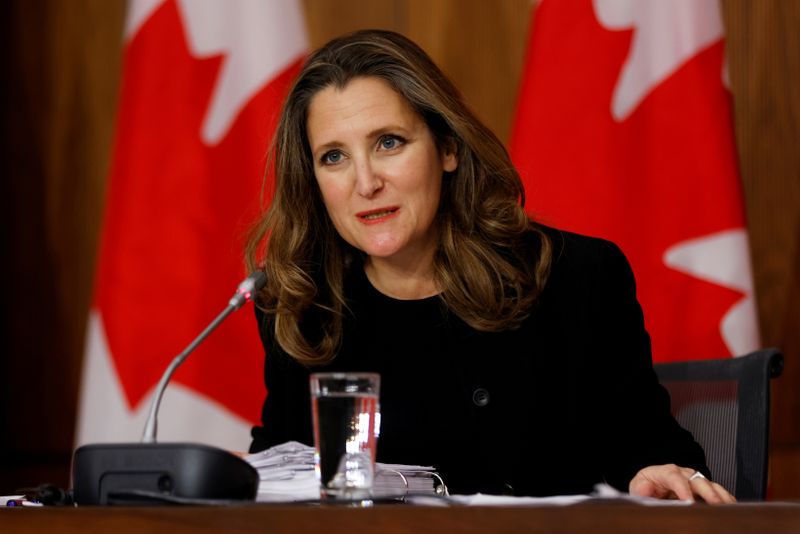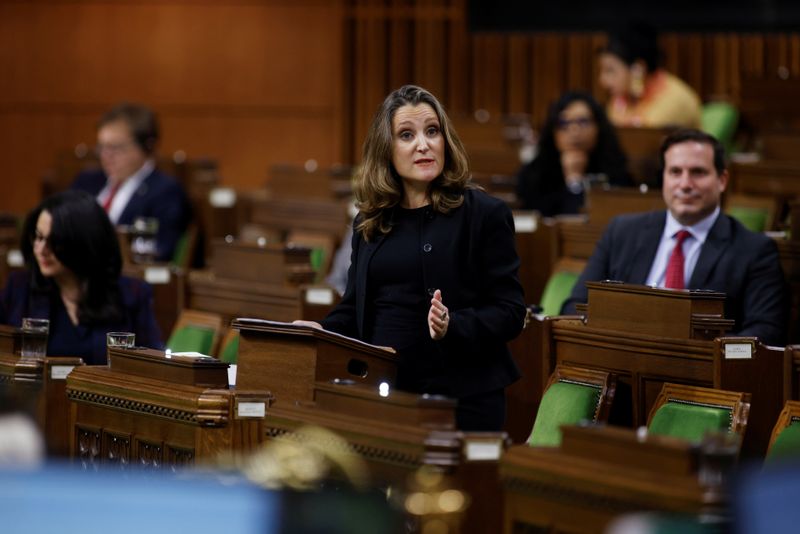By Steve Scherer
OTTAWA (Reuters) - Canadian Finance Minister Chrystia Freeland said on Tuesday she would present the first federal budget in two years on April 19, promising it will offer the support needed to those struggling during the pandemic, plus a plan to boost growth.
"We will continue to do whatever it takes to support Canadians and Canadian businesses. And we have a plan for jobs and robust growth," Freeland said when she announced the date during Question Period in the House of Commons.
Prime Minister Justin Trudeau's Liberal government did not pass a budget last year because it said the outbreak of the COVID-19 pandemic, during which the federal government provided billions of dollars in aid, made it impossible to predict how much spending would be needed.
Trudeau's minority government will need the support of at least one opposition party to pass the spending package. If the budget does not get that backing, a snap vote would likely be triggered about two years before the next election is due.
Senior Liberals have said they expect an election in 2021, but it could come in the fall if the budget passes. Trudeau's Liberals, with 36% support, now lead their main rival, the Conservative Party, by about 5 percentage points, according to a Leger poll published last week.
Canada is ramping up its COVID-19 vaccine drive with the aim of delivering a shot to everyone who wants one by the end of September.
In a fiscal update in November, Trudeau said that once the virus was under control, the government would invest up to C$100 billion ($79.6 billion) over three years to "jump-start" the recovery.
The government has said the first installment of the stimulus promised in November would be in the budget, and that the extra spending would taper off once the economy has recovered.
But the International Monetary Fund has urged Canada to adopt a "fiscal anchor" to guard the credibility of the government's management of the public accounts going forward.
Also in November, the government forecast the budget deficit would hit a historic C$381.6 billion ($304 billion) during the current fiscal year, which wraps up at the end of this month.

($1 = 1.2571 Canadian dollars)
